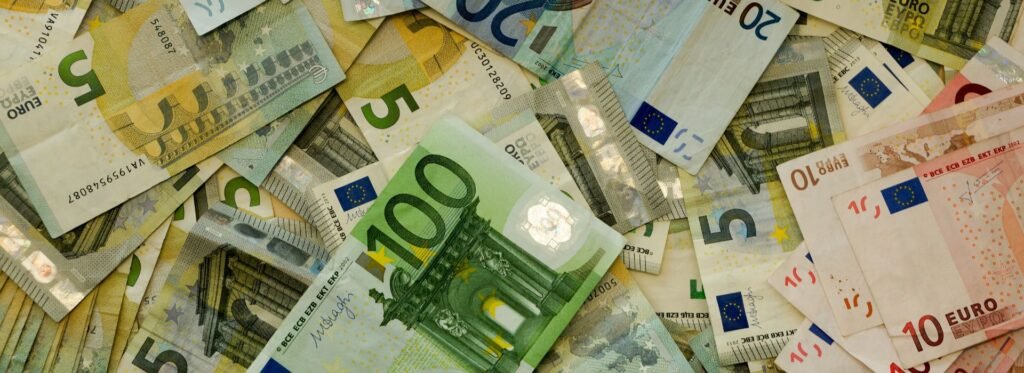
- Leave a review
- Bookmark
- Share
- Report
- prev
- next
Description
Euro Day is commemorated every January 1 to mark the adoption of the euro by 11 European nations, signaling a new era for the continent. Interestingly, the concept of a European currency was first proposed as early as 1929. However, it took 70 years for the euro to become a reality. Today, the euro serves as the official currency in 19 countries, among them Croatia, Denmark, Sweden, and Hungary. Additionally, territories outside the European Union, like Andorra, Monaco, Vatican City, Kosovo, and Montenegro, also use the euro as legal tender.
History
The concept of a unified European currency emerged in the aftermath of World War I when Gustav Stresemann proposed it to the League of Nations in 1929. This initiative aimed to address the economic fragmentation resulting from the war's aftermath.
However, the foundation for a European Economic and Monetary Union (EMU) was not laid until 1969. The European Council tasked Pierre Werner, the then Prime Minister of Luxembourg, with developing strategies to mitigate currency exchange rate fluctuations. These plans were momentarily derailed by the 1970s oil crisis, which destabilized global currencies.
The path to monetary integration resumed in 1979 with the establishment of the European Monetary System (EMS). This system sought to stabilize exchange rates and combat inflation by anchoring currencies to the European Currency Unit (ECU). Building on this progress, the European Council proposed a central bank for monetary cooperation in 1988. Despite British opposition, the Maastricht Treaty, signed in 1992, formalized the creation of the European Union and outlined the framework for the EMU.
The new currency was christened the "euro" in 1995, with its official launch scheduled for January 1, 1999. On this date, the euro was introduced as a non-physical currency, effectively replacing the individual currencies of participating member states. Nevertheless, physical banknotes and coins continued to circulate alongside the euro until January 1, 2002, when euro notes and coins were fully introduced.
How To Celebrate
Educational Events: Organize or attend seminars and workshops about the history, impact, and future of the Euro, discussing its role in promoting European integration.
Cultural Exchange: Host or participate in cultural events that celebrate the diversity of Eurozone countries, such as food festivals, art exhibitions, or music performances from different member states.
Euro-themed Contests: Create quizzes or trivia games related to Eurozone countries, their economies, and currencies, promoting awareness and fun learning.
Public Talks and Discussions: Invite economists, policymakers, and financial experts to speak about the significance of the Euro and its effects on global markets.
Social Media Campaigns: Share informative posts, infographics, and facts about the Euro’s journey on social media, encouraging people to reflect on its importance.
Euro Coin Collection: Display or exchange Euro coins and banknotes from different member countries to showcase the unique designs and heritage each nation brings to the currency.
Local Business Promotions: Support businesses that accept the Euro by shopping locally or running promotions tied to Euro Day, encouraging economic participation.
Amazing Facts
- 1992: The Maastricht Treaty is signed, establishing the groundwork for the Euro and setting criteria for European Monetary Union.
- 1999: The Euro is officially introduced as a virtual currency for electronic payments and accounting purposes in 11 EU countries.
- 2002: Euro banknotes and coins are introduced, and the Euro becomes the official currency for 12 EU member states.
- 2004-2011: Several more countries adopt the Euro, expanding the Eurozone to 19 nations by 2011.
- 2008: The global financial crisis tests the stability of the Eurozone, leading to economic reforms and stricter fiscal policies.
- 2010-2015: The Eurozone sovereign debt crisis sparks bailout programs for Greece, Ireland, Portugal, and Spain.
- 2020: The Euro celebrates its 20th anniversary as physical currency, with continued efforts to strengthen financial integration within the Eurozone.
Why We Love
- Symbol of Unity: Euro Day celebrates the economic and political unity of diverse European nations, fostering a sense of togetherness.
- Economic Stability: The Euro has contributed to economic stability across the Eurozone, making trade and travel easier between member countries.
- Cultural Exchange: It highlights the rich cultural diversity within the Eurozone, reminding us of the shared values and heritage that connect European nations.
- Simplified Travel: The Euro has made travel between countries more convenient, eliminating the need for currency exchange in 20 EU countries.
- Global Impact: The Euro is one of the world’s most powerful currencies, playing a significant role in global finance and trade.
- Economic Integration: Euro Day recognizes the role of the Euro in promoting cross-border investments and economic cooperation.
- Celebration of Diversity: The Euro banknotes and coins feature designs from various member states, symbolizing Europe’s diverse cultures and histories.
- Learning Opportunities: It offers a chance to reflect on the challenges and successes of the European Union and its future.
- Innovation and Growth: The Euro encourages innovation by providing a stable environment for businesses to grow across borders.
- Shared Prosperity: Euro Day reminds us of the shared prosperity that comes from working together toward common economic goals.
Faq's
The Euro (€) is the official currency of 20 of the 27 European Union (EU) member states, collectively known as the Eurozone.
The Euro was introduced as an electronic currency in 1999, with banknotes and coins circulating from 2002.
Currently, 20 EU member states use the Euro, including major economies like Germany, France, and Italy.
Yes, some non-EU countries, like Kosovo and Montenegro, use the Euro, although they are not officially part of the Eurozone.
The symbol for the Euro is "€," designed to represent Europe and stability.
The Euro facilitates easier trade, reduces currency exchange costs, and promotes economic stability across the Eurozone.
The European Central Bank (ECB) is responsible for managing the Euro and maintaining price stability within the Eurozone.

Add a review